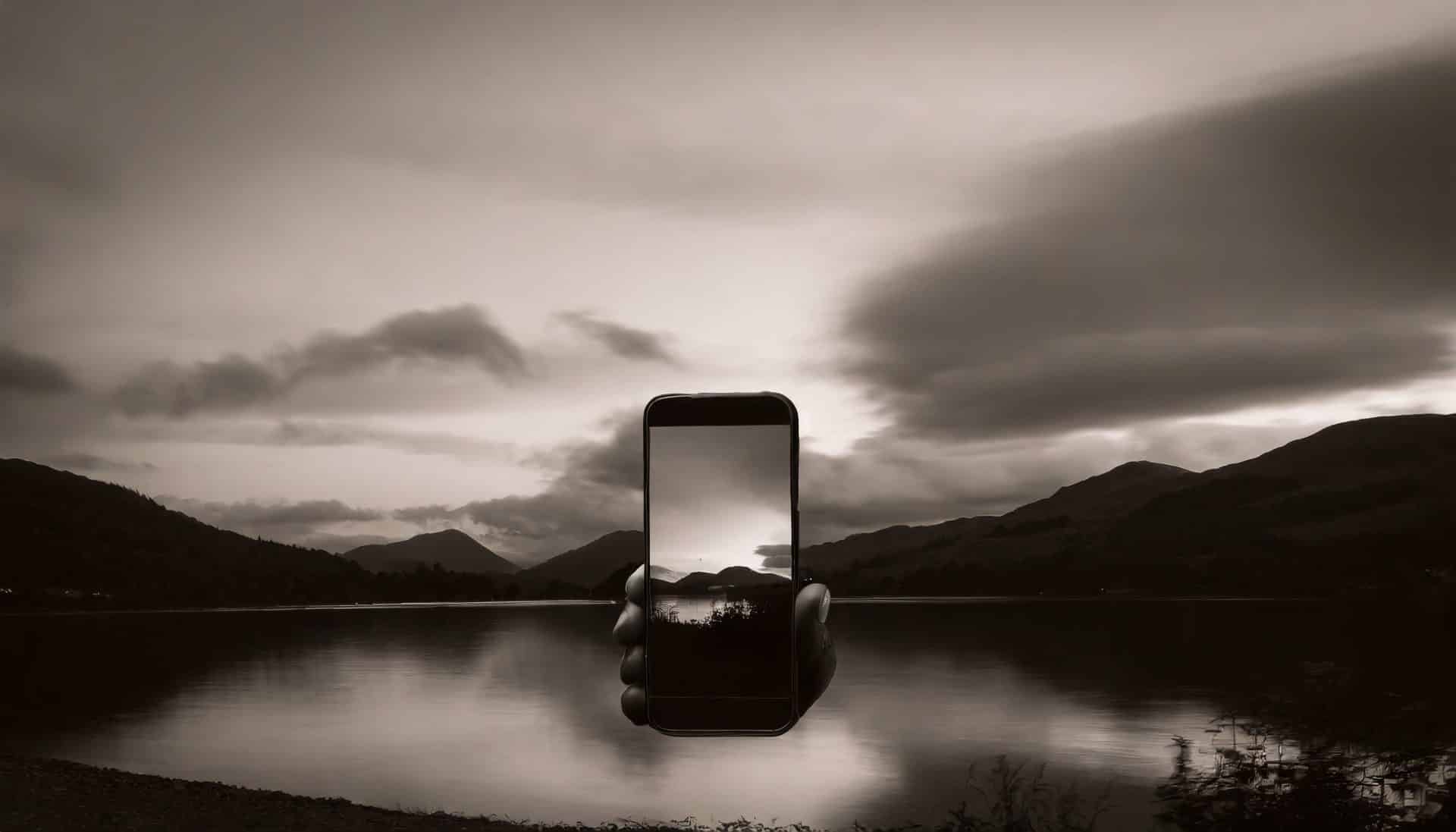Technology is a useful servant but a dangerous master.
Christian Lous Lange
So, like many of you tormented souls out there seeking a break from the ceaseless pull of technology, I decided to experiment with a bit of digital detox. I started with small steps – leaving my phone at home while going for a walk, eating meals without the phone as an uninvited guest at the table, and deciding to keep my phone out of my pocket more.
In this connected world, it seems unthinkable, but let me paint you a picture of life unplugged. Imagine waking up and reaching out, not for your phone to browse social media updates, but gently stretching your arms out, feeling your heartbeat, the luxury of unhurried thoughts, slowly easing into the day.
By relegating my phone to a less accessible position, I’ve discovered a hitherto unknown sense of tranquillity, a new rhythm to life that isn’t dictated by ringtones or notifications. The idea was to reduce the constant interruptions and be free to enjoy the company of loved ones without any distractions. So, let’s delve into the nitty-gritty of this digital detox, the highs and the lows, and my journey to reclaim slices of life from the clutches of my smartphone.
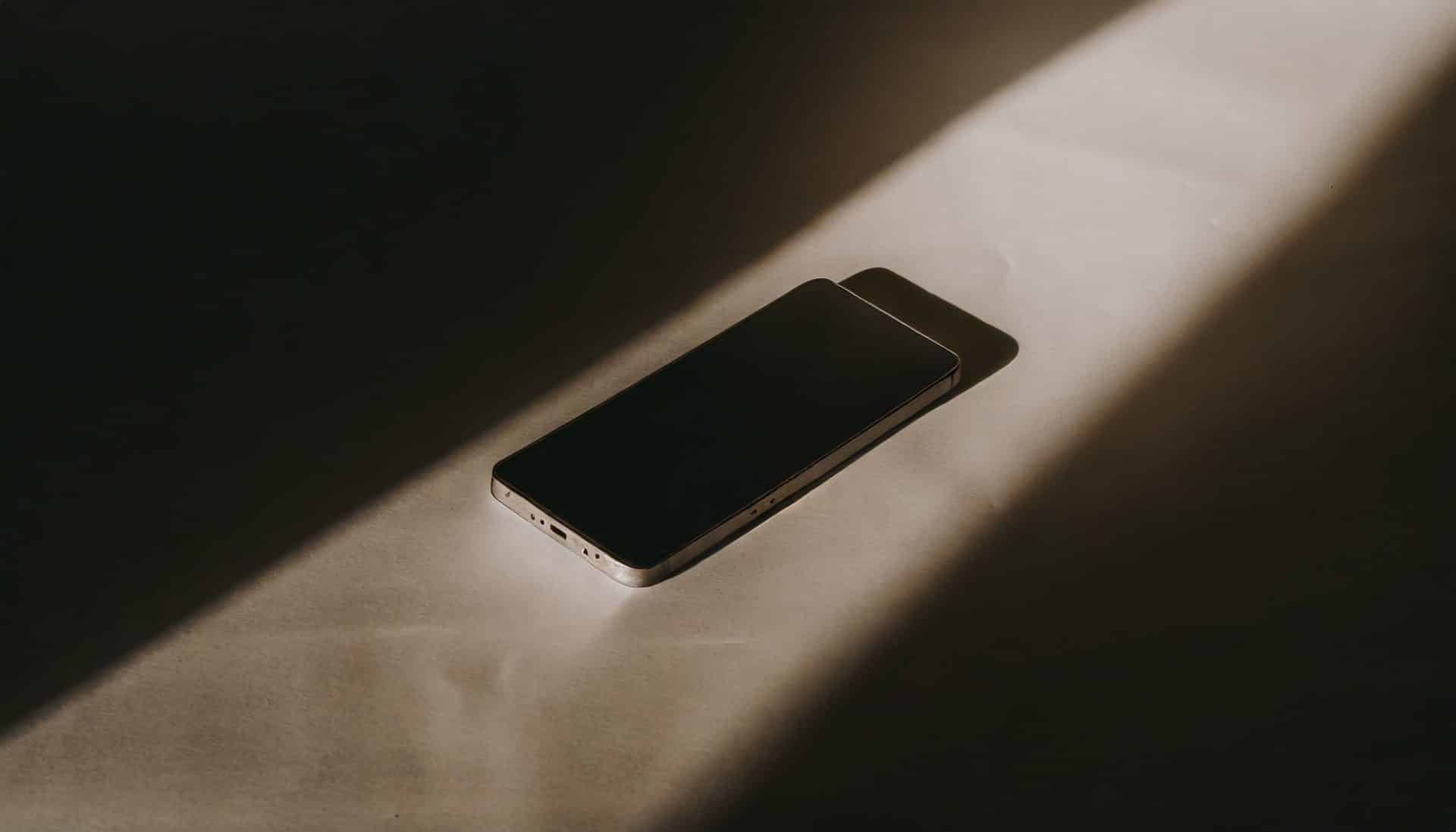
Smartphone addiction is becoming a growing concern worldwide.
TheTemptation of Checking: How Removing Your Phone from Your Pocket Can Help
Just imagine—you’re out for a leisurely coffee with a friend, nestled comfortably in the cosy ambience of your favourite café. You’re both engrossed in that chat about that latest Netflix series when suddenly, a soft buzz. You know that dance. It’s the siren song of a notification. Your pocket pleads for you to reach in and pull out that pesky smartphone. It could be an urgent email, a trivial social media update, or a reminder to drink water. And despite wanting to stay fully present in the moment, this unrelenting desire to check that phone can, more often than not, hijack your attention. So, how do we resist the temptation? Simple—by not having the phone on us at all times.
By not carrying the phone in our pocket, we effectively truncate the signal pathway of digital distractions. It’s like putting a ‘do not disturb’ sign on your time: no phone, no notifications, no compulsive checking–simple. Sure, one might argue the utility of notifications, but more often than not, they’re just sprinkles of chaos peppering our peaceful existence.
We don’t have a choice on whether we do social media; the question is how well we do it.
Erik Qualman
The other pertinent gain is the noticeable decrease in screen time. The ‘out of sight, out of mind’ philosophy works wonders for our addiction to the glaring blues of our phone screens. When the phone isn’t constantly available (for instance, if it’s in your bag), the urge to unlock it every other minute for no apparent reason diminishes significantly.
But perhaps the most impactful perk from this little experiment is the rediscovery of human connection. When you no longer have your phone as a safety blanket to hide behind during awkward encounters or silences, you foster genuine face-to-face interactions, pulling you back to reality and enriching your relationships.
Your Watch is even worse!
A watch is usually the unassuming companion to your smartphone, quietly aiding you while nestled comfortably on your wrist. You might think it’s the perfect, less distracting substitute – it tells time, manages your alerts, and tracks daily activities. But hold on a minute, here’s the rub: wearable tech might just be – wait for it – worse than phones.
For starters, our wrist-bound devices vibrate with each new notification, causing us not simply to glance down but to react physically. Each buzzing notification sends a tremor down your arm, an irresistible call to look. And just like your phone, it’s always within reach – literally attached to you.
I’ve found that wrist alerts can be as intrusive as phone notifications and sometimes even more so. They’re constantly on your person, silently demanding attention with every motion. It’s innocuous initially – a glance here, a slight wrist tilt there. But soon, it escalates into a constant source of distraction as you find yourself checking obsessively, even when there are no notifications.

The more you use technology, the more it uses you.
Unknown
It’s the classic Pavlov’s dog situation. We’ve conditioned ourselves to respond to our smartwatch’s beck and call, being seduced by its vibration, dazzled by its bright screen, and hooked on the immediate gratification it provides.
So before you rush to replace your pocket dweller with its wrist-bound counterpart, take a moment to ponder. You might jump out of the frying pan and into the fire. And we all know how that turns out, don’t we?
Unplugged and Inspired: How a Phone-Free Existence Can Spark Creativity
Have you ever mindlessly scrolled on your phone, caught up in a whirlpool of trending hashtags, liked photos and shared tweets? Well, you’re not alone. We’re all guilty of it on some level. For all its perks and progress, the digital world is a notorious creativity killer. And so, my recent experiment — going phone-free — has me stumbling upon a surprising fact. Removing your phone from your pocket can help mobilise that slumbering creative genius inside.
The constant pinging of notifications, the flashing screen luring you in for that one-quick-check (a myth, if there ever was one!): they all interrupt the flow of our thoughts. There’s a term for it: cognitive bandwidth. Simply put, our brains have a finite amount of processing power, and every unnecessary distraction eats into this. A phone-free existence leaves our minds more space to process, reflect, and create.
Excessive smartphone use has been linked to increased stress and anxiety levels.
And let’s not forget the enriching experiences we’re missing while stuck in a digital trance. Being unplugged from the digital sphere and tuned into the real-world physical sphere creates room for boredom, which often acts as a precursor to our most imaginative ideas. Who knows what sparks could be kindled from a quiet walk in the park, a casual chat with a stranger, or even just staring out of a window?
Without my phone acting as a digital crutch, I was more deliberate about my choices. I started to carry a book, unleash my doodling skills, or sit back and people-watch. It’s almost ironic how we fear missing out on what’s happening online and, in the process, miss out on the world unfurling around us.
So, here’s my humble request. Take the plunge and go phone-free for a while. Let your brain breathe and give those rusty creative cogs some grease. And when you stumble upon that brilliant idea or capture that novel experience, don’t forget to jot it down–done the traditional way. Pen and paper have their old-world charm, but we’ll get to that later. Stay tuned.
Navigating Without a Phone: Rediscovering the Joy of Maps
As a society, we’ve become incredibly dependent on smartphones for practically everything – especially navigation. We’ve traded our natural sense of direction and interest in exploring for the convenience of always having a personal guide in our pockets. But let me tell you – there’s a whole world filled with surprises and new experiences waiting to be discovered when you don’t have Google Maps leading the way.
Android Auto: The on-road companion
Now, I acknowledge this isn’t entirely ‘disconnected,’ – but – I have started using Android Auto in the car, and I think it’s something we should all seriously be utilising where we can.
I look at my phone while driving. You look at your phone when driving. Police look at their phone when driving. We shouldn’t; we all know this. But the pull is strong. Putting it in a ‘hands-free cradle’ – as mine is, is only marginally better – because while you don’t ‘hold’ it – you are likely still looking at it instead of the road.
Now, I plug it in via USB, put it in my glove compartment box and close the lid. I may start locking the lid with the key that needs to go into the ignition—nuclear option.
Android Auto intentionally provides you with a majorly limited interface designed to distract less, allowing you to focus on the road. I can still use the online GPS function of the phone – Google Maps with its traffic updates, Spotify, Podcasts, the phone and basic messaging.
But it’s not conducive to browsing the internet, messaging mates or anything else. The restriction keeps your focus where it should be on driving.
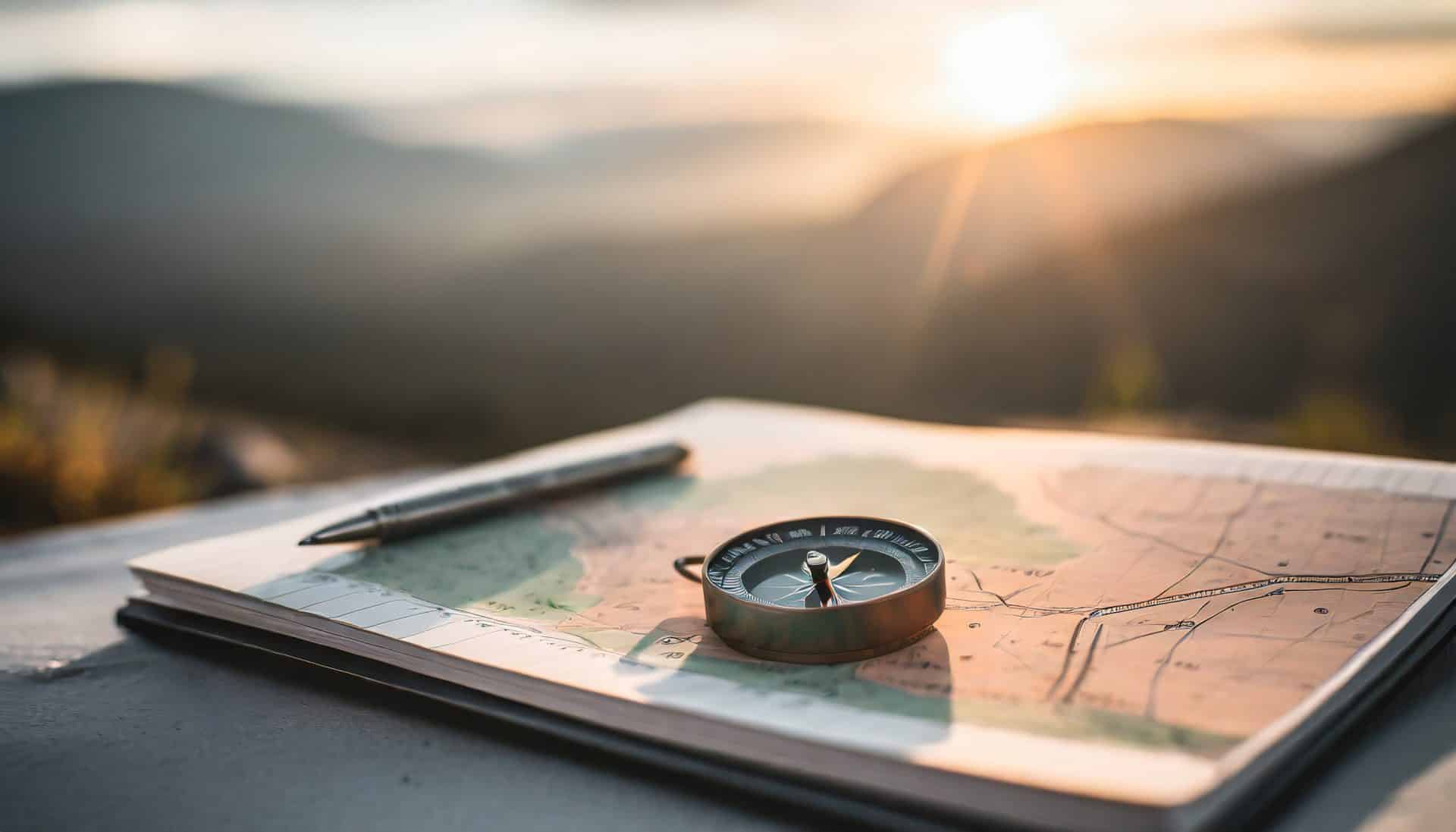
Physical Maps and GPS Units: Old-School is Cool
On foot, it’s not like I am short on navigation items already. I have the Fenix on my wrist, multiple GPS units I have used over the years, and, shock horror – I can still use a map and compass!
In fact, for bush use – I have long preferred to use the watch to give me a Topo50 Location if needed, but I mainly use the physical map to find my way.
For more local walks, where I might need to use it for reference, it is more fun to open up a big old paper map and look at it with someone. There is something more tangible and tactile about the physical maps still.
Another option is to figure out where you are going and hold it in your working memory instead of offloading it to the phone!
Being More Aware: The Unexpected Perk
One of the most notable changes since ditching my phone as a navigational tool is how much more aware I’ve become of my surroundings. Without the distraction of incoming messages blinking on my screen, I’ve been – you’ll laugh at this – noticing trees, marvelling at the architecture, and even making the occasional eye contact with passersby. Rediscovering the world through your eyes rather than a screen is refreshing.
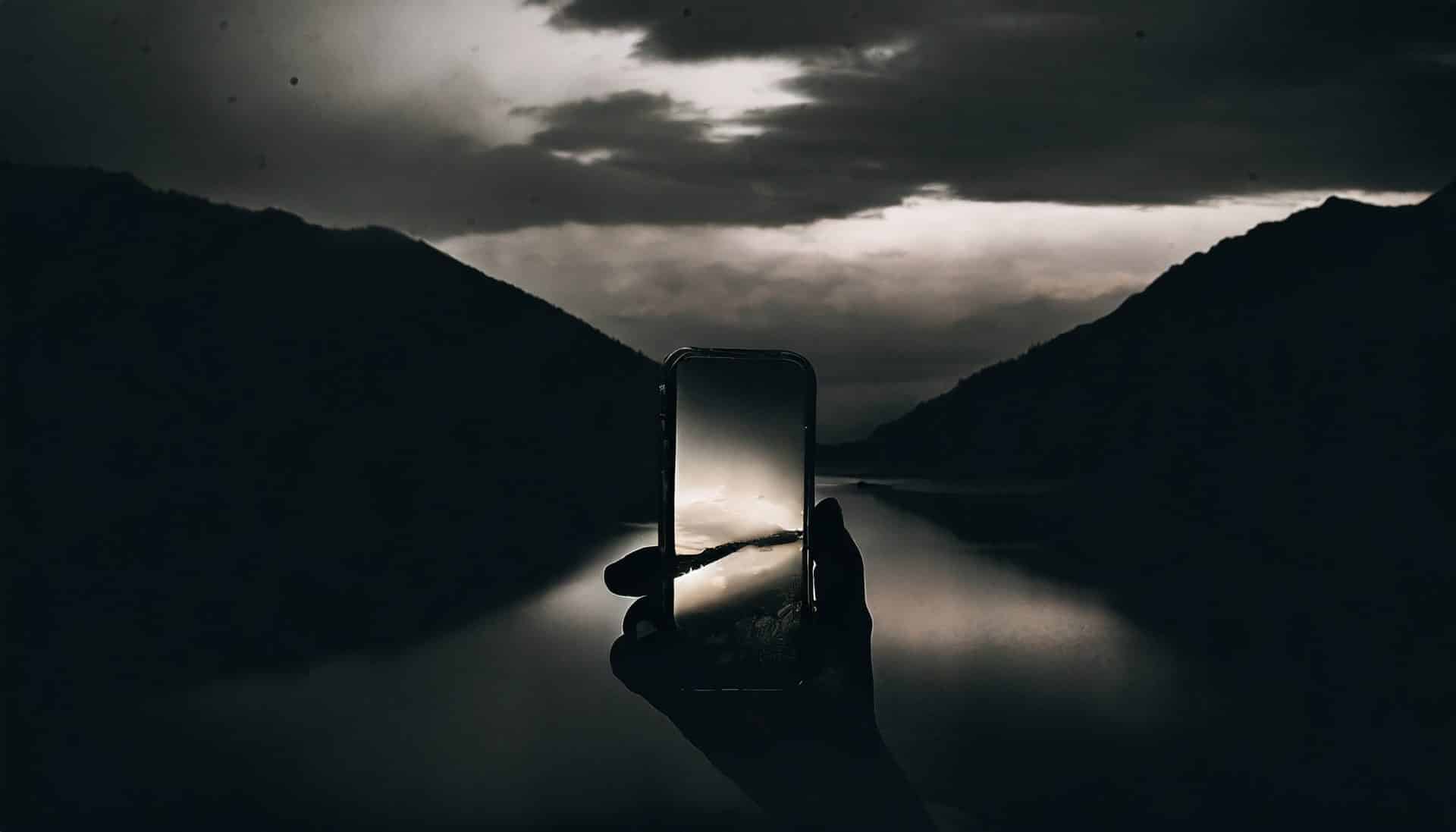
Almost everything will work if you unplug it for a few minutes… including you.
Anne Lamott
Capturing Moments: Embracing Analog Photography in the Digital Age
The pixels of digital photography have taken over our photo albums at lightning speed. Our mobile phones are constantly at our fingertips, ready and poised to capture every laugh, every twinkle in the eye, each sunlit smile. But amidst this flash of digital rapidity, let’s not forget there was once a time when photography was more than a snap-and-forget routine—it was a physical, tangible art, a piece of nostalgia you could feel and touch. Yes, I am talking about the good old film camera.
Now, I am not suggesting that you go back to a film camera (though cool if you do) – I am more meaning the DSLR or newer Mirrorless dedicated cameras (though I still like a viewfinder for reasons I will go into)
Going phone-free might put a damper on your Instagram stories and impulsive selfies, but it could bring you back to the era of ‘analog’ photography. In this era, taking a photograph was a mindful activity, a pause and not a careless click.
Observing from the Viewfinder
Here’s a fun experiment—try looking at the world through the viewfinder of a camera for a change. You’ll find it’s not the same as squinting at your phone screen. The scene feels more real, more vivid. Focusing and adjusting the aperture forces you to take a moment to truly observe and appreciate your surroundings before you immortalise the scene. It insists on being present in the here and now—a refreshing break from the auto-mode of our digital lives.
So, while our mobile phone cameras have their perks—offering us high-resolution image capturing and editing options at our fingertips—reverting to ‘traditional’ cameras can be a delightful slice of nostalgia, an ode to the yesteryears. It’s not just about capturing moments—it’s about living in them. It’s about forming a connection with the scene beyond the lens, about appreciating the magic of anticipation, of surprise.
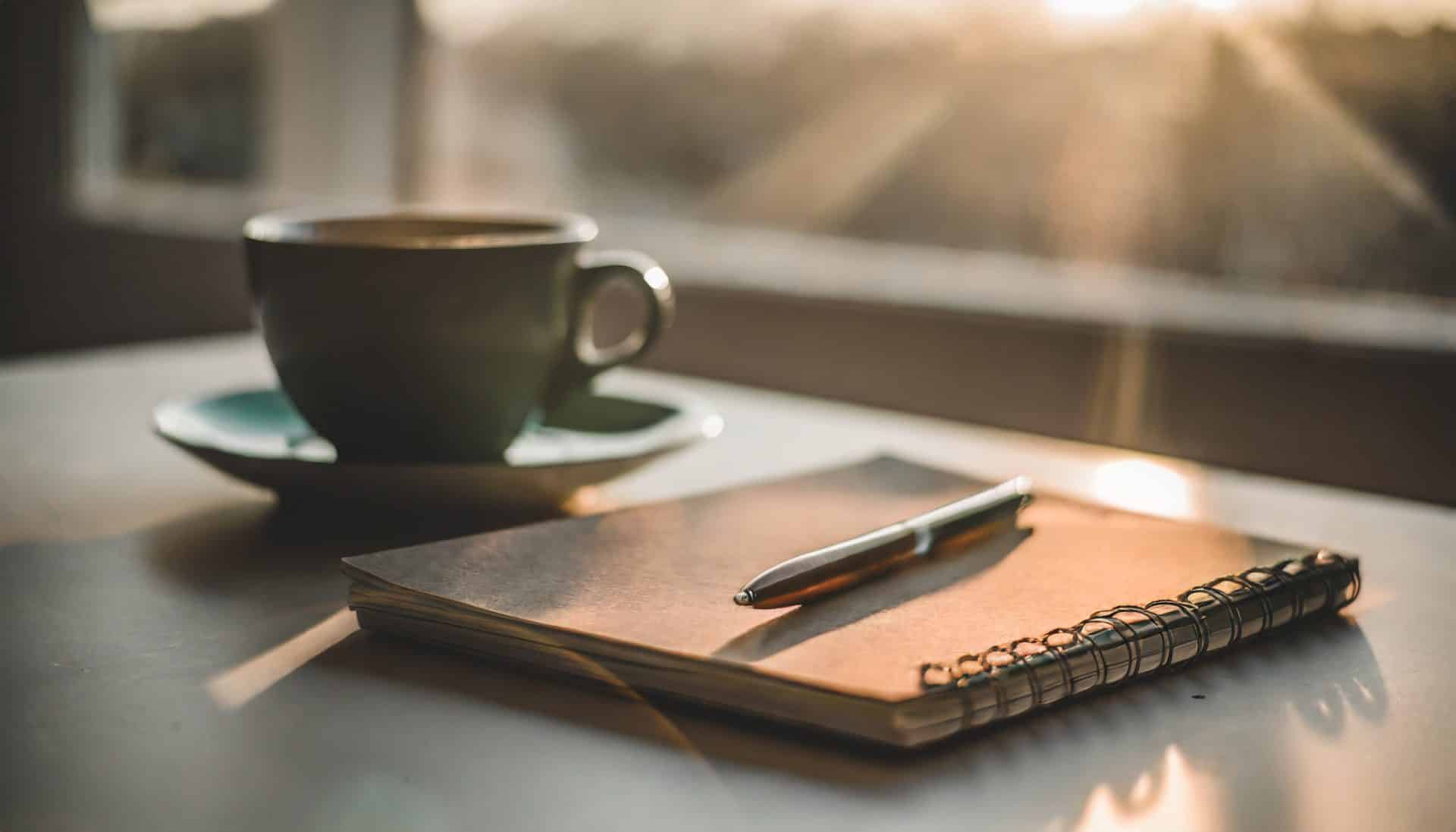
Writing it Down: Pen and Paper
I feel particularly nostalgic when I reach out for a good old pen and paper instead of my sleek, shiny smartphone. After all, we’ve chatted about the advantages of a sturdy notebook before at Every Bloke Should Carry a Notebook.
Scribbling vs Typing: Why it Works
You see, it’s all relatively simple. The act of writing things down, of physically scribbling your thoughts onto a tangible piece of paper—well, there’s a sort of magic to it. Research suggests it improves memory and comprehension and is a mighty way of freeing up mental resources and fostering creative thinking.
The Heart of the Matter: What I Miss and What I Don’t
| The Beauty of Pen and Paper | The Limitations of Letting go the Phone |
|---|---|
| Freer thinking and problem-solving | Lack of copy-pasting option, especially for long texts |
| Better retention of the information | Instant saving and easy retrieval of notes may not be possible |
| Reduced interruptions and distractions | No reminders or alarms |
Sure, the familiar ease of typing in my phone notes came with its own set of comforts, but I must say, I relish the renewed clarity and focus that jotting my thoughts down on paper affords me.
So, the next time you’re about to stuff that phone in your pocket, give a nod to the humble notebook. You might be surprised that it’s just what you need to jolt your mind into action.

Using smartphones before bedtime can disrupt sleep patterns.
The Alarm Clock
Actually, this is one I changed a long time ago – it’s been years since I slept with my phone beside my bed. This is for two reasons – firstly, it’s now clear that having a phone next to you will disrupt your sleep. Be it blue light or just the stimulation at night when you wake up and reflectively reach for your phone to check Facebook updates? Why? Secondly, an actual alarm clock is a better job tool. It’s reliable, functional, and doesn’t carry the risk of distracting you with a bombardment of notifications first thing in the morning. With this slight shift, waking up has become less about diving into digital distractions and more about greeting a new day’s fresh opportunities. Oh! Did I miss out on any meaningful notifications? No. I see; it’s just another flashy sale on an e-commerce app and some birthday reminders! Before my digital detox, the first 20 minutes of my day used to go in scrolling aimlessly; now, it’s full of mindful, peaceful moments of just me, my coffee and the quiet morning.
Oh. And the Alarm Clock – I still use my phone – it’s just in another room – so I have to get up to turn it off. I get up, put on the kettle, drink a glass of water… and, surprise, the day has started, and that snooze button isn’t an option anymore. And by ‘peaceful’ – I mean stretching or a workout.

The fear of not permanently being able to be contacted.
No. You are not GHOSTING people if you don’t immediately respond
Let’s face it: we live in a society where people expect an instant response to their messages. When we don’t reach back immediately, they tend to think we’re ghosting them. Yet instant connectivity was not always the norm—the shift has sneaked up on us, subtly altering our perception of expected human interaction timing.
Part of the anxiety stemming from a phone-less pocket comes from this fear of ghosting — the terror of being unable to respond at once. We’re leaving people in the lurch, hanging on our digital tendrils as they anxiously await our response. But let’s take a step back — are we really stranded without our phones? Or, to put it another way: By leaving our phones behind, are we actually ghosting people?
The answer is a resounding no.
Over-reliance on smartphones can negatively impact face-to-face social interactions.
We are not breaking any social contracts; we’re merely readjusting them, moving away from an ‘always available culture’. Remember those days before mobiles came in — when you would call people on their landlines? If they weren’t home, you’d leave a message, and they would respond when possible. Humans could function entirely well then, and we can do it now. No rule says you must answer a text within five minutes. If it’s essential, they’ll call; if you’re not around, they’ll leave a message or call back.
Not having your device on you at all times can improve relationships. We must re-learn the art of conversation, anticipation, and delayed gratification. Have you ever noticed how seeing someone after a while makes the conversation much livelier? A sense of excitement is entertainingly absent when we’re in constant digital touch.
Instant gratification takes too long.
– Carrie Fisher
Indeed, Ms Fisher was correct. Running towards an ‘always on’ culture deprives us of the thrill and charm of delayed gratification. The ‘missed calls’ and ‘texts to reply to’ can inspire fantastic anticipation. And to those waiting for your response on the other side, it conveys a message too — that you respect your time and won’t be immediately available always. It eventually helps set healthier boundaries where the expectation of an instant response is moderated, forging a better balance for all.
So, next time you leave your phone behind, rather than feeling like a ghost, feel free. Free from conditioned responses and free to live life at your tempo. You’re not ghosting – you’re simply ‘being’ and encouraging everyone else to recalibrate their expectations.
Use your PC instead of your phone
I am aware it’s just possible to spend a lot of time ‘doom-scrolling’ through your social media feeds on a Computer. But. There is still quite a difference between that and permanently having the ability to do so in your pocket. In addition, I am more productive when doing social media work on my PC than on my phone. With the help of a larger screen, I can manage multiple tabs simultaneously and have an easier time typing out responses. It’s a small change but adds up over time – fewer disruptions and less time lost to the smartphone abyss. And the best part? I can put it away when I’m done, closing the door on the digital world for a bit. This way, I get to decide when to engage with the virtual, rather than being led by the constant pinging of my phone.
Unfortunately, indeed, things need to be still done on the phone (like updating stories for your social feed) – and – like many creators – I feel the constant tug and challenge of wanting/needing/thinking I need to be updating my social feeds to be relevant constantly. But. I guess here is the rub – I want to be known for long-form, in-depth articles about subjects – not what I had for lunch. So – what am I trying to achieve? It’s a balance between the need to stay digitally connected and the desire to delve deeper into my passion – crafting well-thought-out pieces that resonate on a level that no fleeting Instagram story can. Perhaps it’s about prioritising quality over quantity, substance over superficiality, and, in the process, allowing myself to experience life beyond the confines of a small screen.
Mindfulness in Motion: How Removing Your Phone from Your Pocket Enhances Awareness
There’s something almost meditative about pulling your phone from your pocket and pouring through your latest notifications—the vibrating buzz, the glowing screen, the short-lived satisfaction of responding instantly. But what if I told you that these seemingly innocuous habits could smother your ability to be truly present?
Let me paint you a picture: Imagine you’re walking through a park. The leaves rustle overhead; birds sing their unique melodies, and a gentle breeze is sighing through your hair. But rather than savouring these sensory delights, your attention is on your phone, fingers mindlessly scrolling through your newsfeed. In this scenario, are you really ‘in’ the park, experiencing it, being present? Probably not.
Sweeping digital devices aside allows us to unlock new levels of sensory awareness. It’s like the Mayor of Mindfulness Town just granted you the key to the city—welcome to the world of heightened perception.
Swapping touchscreen navigation for real-life navigation can deliver wonderfully unexpected dividends. Did you ever notice that architecturally exciting building on your way to work when your eyes were glued to your phone? Probably not. But it’s been there all this time, waiting for you to admire its charm.
Or perhaps that cheeky squirrel scampering up a tree, the vibrant red flowers blooming on the roadside, or the cloud that looks startlingly, funnily like your favourite cartoon character. These largely unnoticed treasures of daily life become a great joy; all you need to do is release your smartphone stranglehold.
With your mobile safely stored away, you engage with your surroundings, enhancing your connection with the world. You step into the ‘here’ and ‘now,’ letting every sensory detail wash over you. And let me tell you, friend, that life lived in this vivid panorama is immensely gratifying. You are not just surviving from one notification to another; you are flourishing, luxuriating even in the heady cocktail of reality.
Removing your phone from your pocket is not merely about reducing digital clutter—it’s an invitation to mindfulness. It’s a chance to engage more mindfully with your experiences and appreciate each moment’s fullness as it unfolds right before your eyes. Ssssshh… Do you hear that? It’s life calling. Be sure to answer.
Putting Your Phone Away While Eating: Prioritising Real Connections
Next on the digital detox journey, let’s mull over our dining tables. Isn’t it a gathering spot for substantial conversations, a platform for bonding, and a haven for delicious food? But wait, what’s that blinking and buzzing in the middle of the table? Yes, you’ve guessed it right—it’s a phone—my phone, your phone, apparently everyone’s phone!
But why? Have we forgotten the joy of connecting with people right across the table? With this question in mind, I embarked on a quest to banish phones from the dining table and found some remarkable results.
Do not be a slave to your phone; let it be your servant. You are the boss. Allow your phone to understand that your meal times are strictly off-limits.
Eating Without Distractions: Phoneless and Fancy-free
I know it sounds a touch daunting, but believe me, putting your phone away while eating is like opening a door to a more quality life. No notifications to interrupt your meal, no need to multitask—you, the food, and the company, that’s what matters.
Positive Talks: With no phone to serve as a distraction, you engage in wholesome conversations. Remember those days when we used to talk about our day, our dreams, or even the latest gossip around the water cooler? It’s time to bring those back!
Mindful Eating: You learn to appreciate the food you eat. We forget how fortunate we are to have a hearty meal in front of us while flipping through Facebook or Twitter feeds. Let’s savour our pasta, not posts.
Improved Relationships: When you dedicate your attention to the people around you by putting your phone aside, you convey a message—”You matter to me.” This can significantly improve the dynamic of your relationships.
But wait, What About the Urgent Calls or Messages?
Granted, there are some limitations, but there are ways around them as well. Imagine this—your primary device won’t be at your immediate disposal, but that doesn’t mean you’re going off-grid completely.
| Limitation | Solution |
|---|---|
| Potential for missing urgent calls or messages | Keep your phone in a different room with the volume high enough that you’ll hear if there’s something truly important |
| Not having your phone handy for mealtime snapshot | Well, not every meal needs to be Instagram-perfect, does it? Savour the taste, not the likes |
Ponder upon this, my friends—
Eating without the constant chime of your phone, are you ready to savour this new-found freedom? Believe me, the experience is liberating!
The Unexpected Benefits: What You Might Discover When You Leave Your Phone Behind
Lunchroom conversations
I recently talked with a couple of co-workers about the inherent differences in childhoods, individuality, robustness, and culture – from the differing viewpoints of a NZ-born European and a Chinese and Japanese viewpoint. This enlightening and enjoyable conversation would not have happened if I had been staring at my phone!
These moments of raw humanity remind me of the importance of being truly present in each interaction. Would such conversations happen in your life if your eyes were fixated on a screen?
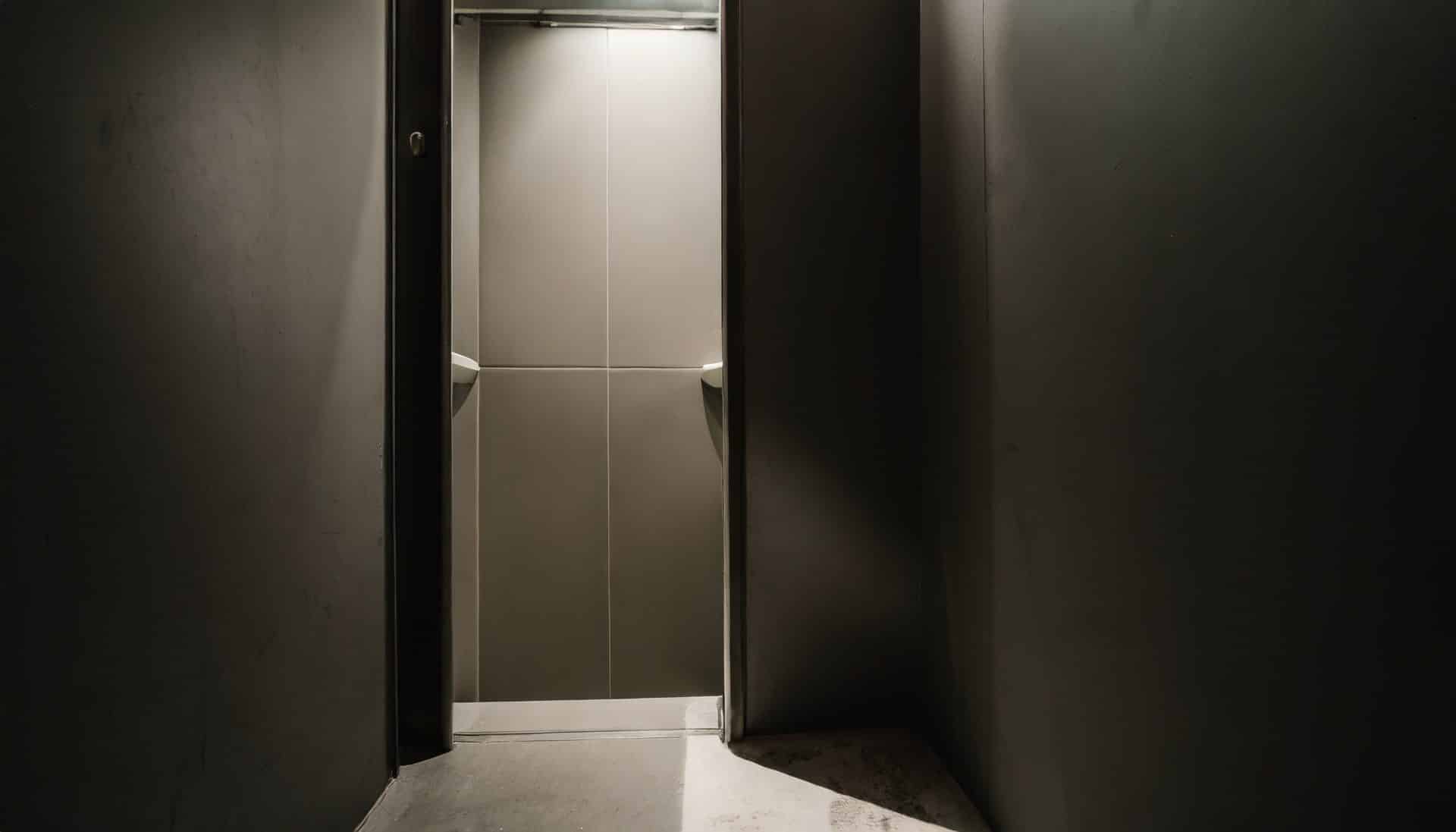
You are quicker in the bathroom!
You wouldn’t expect it, but this is a truth universally acknowledged – without your phone, you’re lightning quick in the bathroom. Remember those minutes (or hours?) spent scrolling mindlessly, utterly oblivious to the real world? No more! Your bathroom visits swiftly become exercises in efficiency.
Did you know aside from being a distraction, using your phone in the bathroom is also a bit of a hygiene no-no? Our hands are not the cleanest in such an environment, and those substances – you don’t want to give them a free stroll on your phone surface. So, without your phone in hand, you’re not merely quicker – you’re also cleaner and, therefore, healthier.
So, humour me. Try to leave your phone behind when you’re heading for a bathroom break. You’d be amazed at how those stolen minutes add up, giving you extra time to spend elsewhere (hopefully not on your phone!). Plus, what is your cleanliness level? Up a notch!
The Limitations of a Phone-Free Lifestyle: Exploring the Challenges and Solutions
Adopting a phone-free lifestyle is no easy feat. I know it, you know it. We’ve grown so accustomed to our digital companions that managing without them feels like being stranded on a desert island. It’s not all coconut cocktails and stunning sunsets; I’ll give you that. There are limitations, but no problem can’t be solved if you aren’t afraid of a bit of improvising.
The Challenge of Disconnection: Firstly, the most prominent issue is the sudden drop in connectivity. No longer being able to instantaneously Google your random queries or have real-time chats with friends halfway across the globe can be jarring. “What’s the capital of Mongolia?” I found myself asking nobody in particular during a pub quiz. “Hang on, let me Google it” wasn’t an option. But remember, folks, it’s a limitation, not a deal-breaker.
Missing out on App Magic: We can’t ignore the sheer convenience mobile apps provide either. Whether it’s a fitness tracker, music streaming, or mobile banking apps, they all integrate seamlessly into our lives, leaving noticeable gaps when we try to unplug. Do I miss tracking my steps and heart rate? Well, not really. It’s extra data, but are you doing much with it? Do you go for a long walk if your steps are not up to your 10k target?
I still need to do certain things on the phone, but do I need the ability to do them on demand, at any time, day or night?
In Case of Emergencies: Then there’s the safety aspect. Having a mobile device within reach does offer a certain degree of security. The thought of being stranded somewhere without a phone to call for help is unsettling. Yet, I can’t deny that this nagging fear made me mind my surroundings and plan my routes more carefully.
But The Solutions are Endless: But let’s not wallow in digital despair, shall we? Instead, let’s take these challenges head-on. Limit Internet queries to when you’re near a computer or ask someone else. For the app magic, rediscover the virtues of a good old MP3 player or put it on the local radio. As for safety, carry a small physical map or note essential addresses and phone numbers in a pocketbook. Dont worry. The phone still lives in the car! It’s never that far away if I need it.
So yes, the limitations of a phone-free lifestyle are real, but every challenge offers an opportunity for creativity. The solutions might not be as shiny and enticing as the latest smartphone with bells and whistles, but they can get the job done. Plus, the sense of accomplishment that comes from navigating life with resourcefulness and resilience? Now, that’s something no app can offer!
The true price of anything you do is the amount of time you exchange for it.
Henry David Thoreau
This isn’t easy.
Don’t get me wrong, I fail every day at this project. I still habitually grab my phone to check for any missed notifications because I turned them off. It’s pretty surreal just how habitual and ingrained this behaviour is, and I am consciously aware of it now! Understanding the depth of our digital addiction is the first step towards meaningful detox. The journey may be fraught with initial failures, but each moment of awareness brings the possibility of change closer. So, here’s to failing forward towards a less digitally constricted life!

